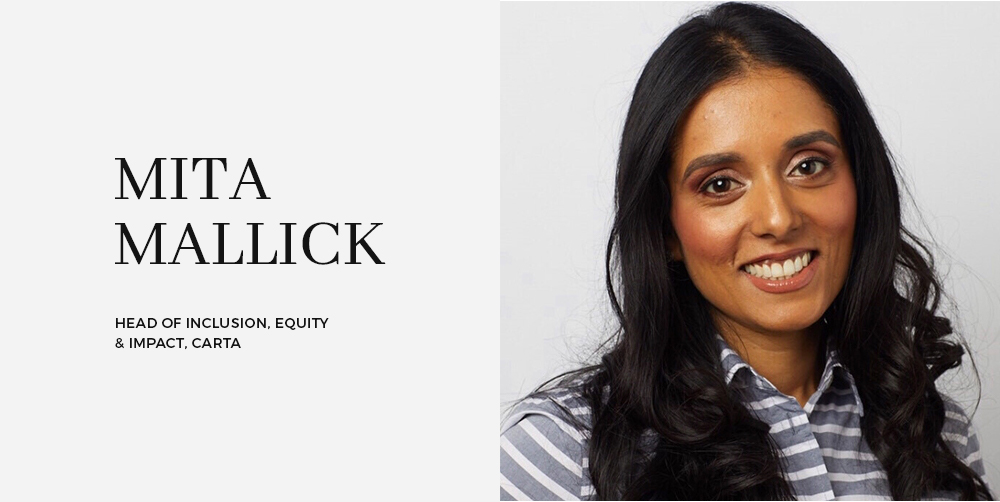There’s a global movement happening right now that is empowering HR professionals to elevate their voice and strategic contribution to the company in building a better workplace. Mita Mallick, Head of Inclusion, Equity & Impact at Carta, is one such leader whose contributions towards DE&I have inspired a generation of HR professionals to invite more diverse and inclusive thinking into their work. In a candid conversation, Mallick highlights why investing in DE&I and the employee experience will be the most important step in a post-Covid world.

The HR Digest: What challenges did you come across while working as the head of diversity at Unilever and Carta? How did you manage these challenges?
Mita Mallick: We spend billions of dollars on Diversity, Equity and Inclusion (DEI) training as a country. We are all in the perpetual race to build more inclusive cultures at our workplaces. And yet this work doesn’t start in our organizations, it starts at home. It starts at our kitchen tables.
Because the real question we should all be asking ourselves as we scramble to create inclusive work cultures: How can we expect to show up and be inclusive leaders in our workplaces if we live the majority of our lives in communities surrounded by people who only look like us? Start by challenging yourself to build cross cultural bridges and learn about lived experiences that are not your own. Take the time to build relationships with those from communities you don’t identify with. This is one of the first steps in showing up as inclusive leaders, to build empathy and understanding for experiences that aren’t our own.
Do you think it is easier or harder for women and minorities entering the workforce?
The systemic barriers still exist for individuals from historically marginalized communities entering the workforce. We see this evidenced by the recent news of Wells Fargo hosting “fake interviews.” The company allegedly staged fake interviews with individuals from historically marginalized communities, when the job was already promised to someone else. We know individuals from historically marginalized communities are subjected to “fake promotions,” face microaggressions and have low representation in leadership rooms across the country. We have work to do to create more equitable workforces.
What are three things you wish you could tell everyone entering or in the workforce right now?
First, think of how you can be showing up with more kindness and grace for your colleagues. We need more empathy in our workplaces. Second, the work to create a more inclusive culture doesn’t belong to the CEO, the Chief People Officer, or the Chief Diversity Officer. This work belongs to all of us. Finally, it doesn’t matter what level you are in your organization- you can make a difference. You can work with recruiting to ask about diverse slates for open roles. You can interrupt bias when you see things happening to your colleagues; when you see something say something. You can also vote with your wallet; you can advocate to bring in more diverse suppliers and you can also personally support small business owners.
“We are all in the perpetual race to build more inclusive cultures at our workplaces. And yet this work doesn’t start in our organizations, it starts at home. It starts at our kitchen tables.”
What are you proud of in terms of what you’ve accomplished?
I am the proud mom to Jay who is 9, and Priya who is 7. They are my biggest accomplishment. I do this work in diversity, equity and inclusion to create a more equitable world for not just Jay and Priya, but all of our children.
How are you going to shake things up next?
I am the proud co-host of the Brown Table Talk Podcast with my friend Dee C. Marshall. We are on a mission to lift up as many women of color as possible. We want to help them not just survive but thrive in their workplaces. And we need allies to join us in this conversation to do better and be better. Because we can’t change what we won’t discuss. We hope you will listen in and join us.





